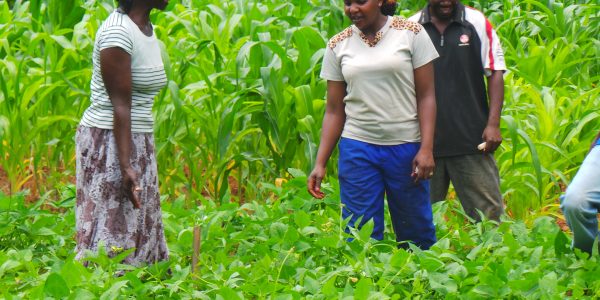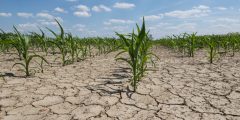The nutritional quality of crops and the impact of climate change
November 5, 2021
Today at COP26, discussions are focused around public empowerment and education in climate action. Galvanising public action is difficult but not impossible. Grace Kangara explains how promoting locally available organic nutrient resources to farmers is key to both improving soils and improving the nutritional quality of crops, ensuring the availability of micronutrient-dense foods at the …
Meeting the protein needs of a growing, and aging, global population with healthy and sustainable protein sources
November 3, 2021
We need sources of protein that don’t harm human or planetary health, writes Prof Andy Salter. Humans require sufficient supplies of dietary protein, of appropriate quality, to grow and maintain health throughout their lifespan. Protein quality is dependent on both the amount of essential amino acids contained and its digestibility. While animal-derived foods represent rich …
The problem of cadmium in cocoa beans
November 2, 2021
We are identifying ways to produce safer chocolate in order to help small-holder farmers, say David Salt, David Gopaulchan and Gabriel Castrillo Cadmium is a potentially toxic heavy metal that can be found in various foods through bioaccumulation from the soil. It occurs naturally in soils (from volcanic activity, forest fires, and rock weathering), but …
The effects of increasing night time temperatures on plants
October 28, 2021
It is vital to explore the night time processes of plants to protect our crops from changing climatic conditions, say Prof Erik Murchie and Dr Lorna McAusland The last decade (2009-2019) was the warmest on record. With global temperatures predicted to increase between 2-5 °C over the next 30 years, and more frequent, longer lasting …
Identifying heat tolerant rice varieties to maintain future food security
October 26, 2021
Rising temperatures are forcing scientists to develop heat tolerant varieties, but this takes time. Policymakers must commit to emissions reductions now, in order to avoid future food insecurity, writes Jordan Robson Global warming is undeniably a huge issue. Average temperatures have been rising steadily since the industrial revolution, and have risen significantly since the 1950s. …
Giving up meat and eating plants instead: Is it really that simple?
October 25, 2021
The complexities of nutrition and the misrepresentation of the livestock/meat industry are creating a simplistic view of much more complex systems, say Andy Salter and Phil Garnsworthy A Guardian commentary piece last week suggested that British meat-eating habits were rather out of control, and would need to be reduced by at least 20% (a statistic …
Adaptation in the face of adversity: unlocking the secret of the genome
October 20, 2021
How can we better understand plant responses to stress through their genomes? Prof Levi Yant and Dr Guillermina Mendiondo discuss different ways to look inside the world of plants. Life’s astonishing diversity is entirely the product of evolution. Adaptation of any organism to the environment, and the reflection of this adaptation – the evolution of …








Recent Comments